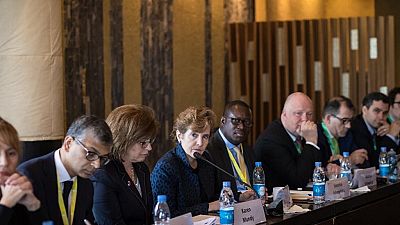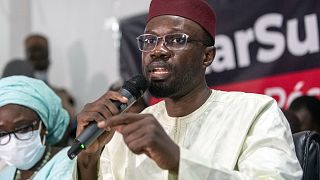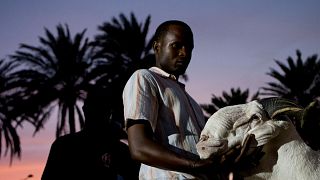Senegal
In an effort to help developing countries strengthen their collection, management and utilization of education data, high-level representatives from the private sector, international organizations, developing country governments and other partners came together at the Global Partnership for Education (GPE) Financing Conference in Dakar, Senegal, to launch a major new initiative called the Education Data Solutions Roundtable.
The initiative aims to improve developing countries’ capacity to gather accurate, comprehensive and timely data, which is essential to understand where improvements are needed in education systems and where progress is being made.
Chief Executive Officer, Global Partnership for Education, Alice Albright said more and better data are essential to building effective and resilient education systems that deliver quality schooling at scale.
“The data challenge is one of our most pressing priorities. Without the right information about the performance of their education systems, including data about the number of children in school and their learning progress, governments are essentially flying blind. That is why most of our grants fund country-level data improvements,” he added.
The new public-private initiative recognizes that the business community, in partnership with other stakeholders in development, can offer innovative solutions, creative thinking and new technology that will drive improvements at community, regional, national and ultimately global levels. The initiative is part of the Global Partnership for Education’s knowledge and exchange work.
UNESCO’s Institute for Statistics (UIS) is a central partner in the initiative. It serves as the statistical office of UNESCO and the primary UN repository for cross-nationally comparable statistics on education covering more than 200 countries and territories.
“The experience of the past two decades has confirmed that data, especially learning assessment data, is fundamental to effectively monitor the targets as a first step towards achieving SDG4,” said Qian Tang, Assistant Director General for Education of UNESCO.
The Global Partnership for Education’s developing country partners are increasingly making good strides in collecting and reporting education data. Forty-three percent met GPE’s data reporting benchmark in 2016, up from 30 percent in 2015. But critical gaps remain as nearly one-third of GPE partner countries lack large-scale learning assessment systems.
The Education Data Solutions Roundtable will include between 15 and 20 members and will operate for 12 to 18 months as an advisory body to GPE on education data.














01:39
Liberia's health sector stares at a crisis as USAID comes to an end
01:23
USAID officially shuts doors, American government announces
01:13
Myanmar earthquake hampers aid efforts amid crisis
03:29
Lesotho registers its discontent with Trump's mocking comments
01:41
US Aid freeze sparks warnings from Ethiopian rights leaders
00:51
Judge halts Trump’s effort to dismantle USAID